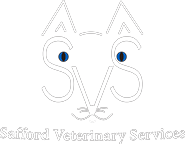Doggy Dental Care 101


Did you know that brushing Fido’s teeth is a great way to keep his choppers healthy? Just as with people, removing plaque and tartar is extremely beneficial for dogs, and can help prevent many dental issues. Of course, you’ll need to get your canine buddy on board with the process. A Lasalle County, IL vet offers some advice on that below.
Choosing Gear
You’ll need to get some things that were made specifically for dogs. Our toothpastes aren’t safe for Fido, and our toothbrushes aren’t angled the right way for his mouth. You can also try a thumb toothbrush if that seems easier. Getting a flavored toothpaste may help your pooch warm up to the idea.
Starting Out
Needless to say, Fido is probably going to be a bit wary if you just stick a toothbrush into his mouth. At first, just gently rub his teeth, gums, and lips a bit as you are petting him. Don’t go overboard: small steps are the way to go. You, of course, have the upper hand if you have a puppy, but you can still train older pups to accept the toothbrush.
Rewards
In order for you to get your canine companion fully onboard, you’ll have to make sure that he forms a positive impression about the process. We all know what that entails: treats! Use high-quality snacks, especially at first.
Schedule
Dogs tend to have pretty limited patience when it comes to things like having their paws and teeth cleaned. Keep sessions short and sweet. You don’t have to do your pet’s entire mouth every day. Just do one quadrant at a time and keep rotating. This may also be easier as you’ll be able to break down Fido’s doggy dental care routine into a few minutes a day, and just make it part of his regular schedule.
Alternatives
Some dogs just won’t tolerate having their mouths touched. This isn’t something you want to force. Ask your vet to recommend other options. There are many doggy dental products on the market that can help keep your furry pal’s mouth clean. These include dental flakes, oral rinses, and dental treats, chews, or kibble. It’s also important to make sure Fido always has clean water and suitable chews.
Do you know or suspect that your pooch has dental issues? Contact us, your Lasalle County, IL animal clinic, today!
